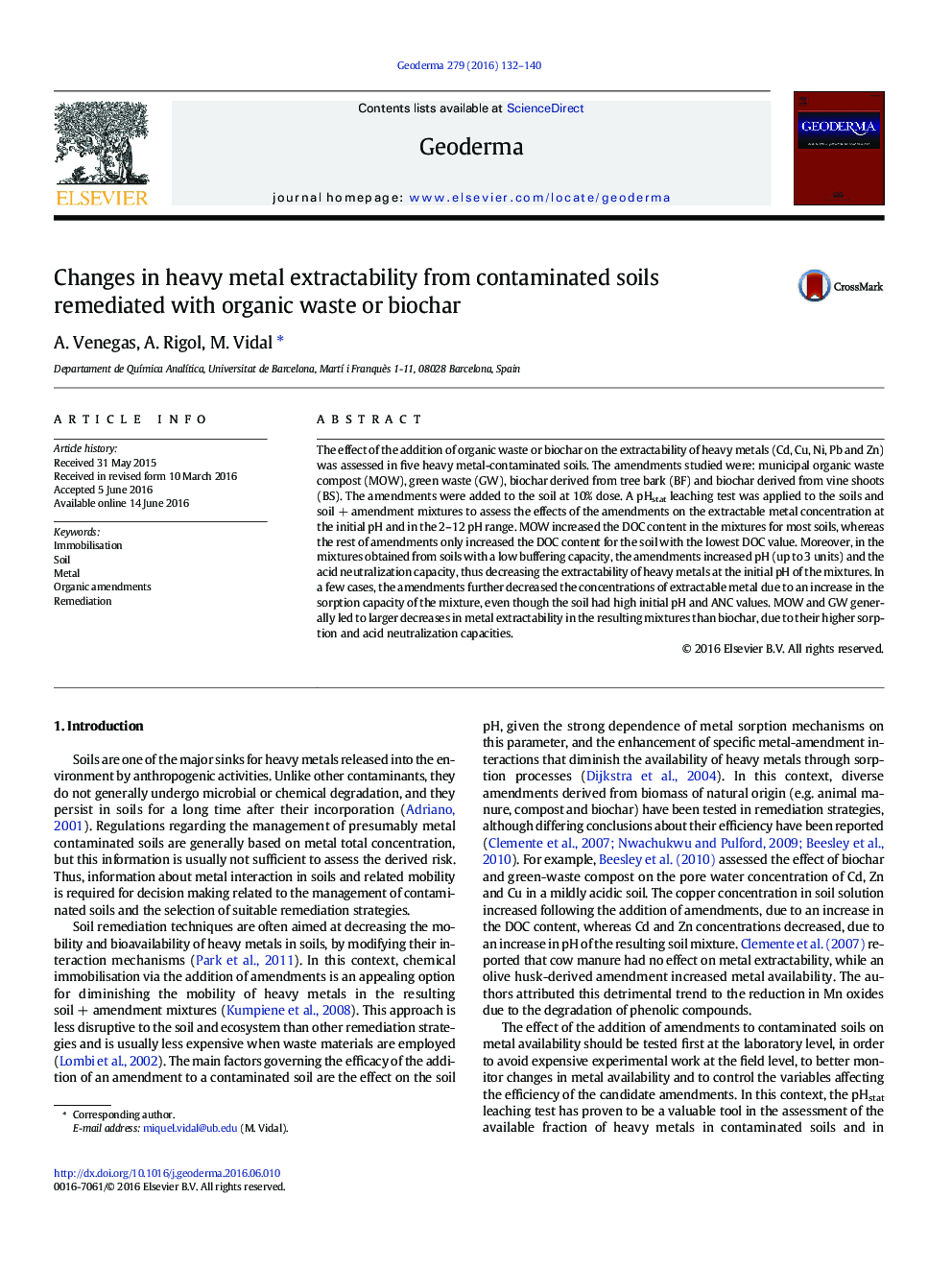| Article ID | Journal | Published Year | Pages | File Type |
|---|---|---|---|---|
| 6408322 | Geoderma | 2016 | 9 Pages |
â¢Amendments increase the pH and buffering capacity of acidic soils.â¢Amendment incorporation does not cause major increases in dissolved organic carbon.â¢Organic wastes also decrease metal extractability by an increase in sorption sites.â¢Amendment application decreases metal extractability at the initial pH of the mixtures.
The effect of the addition of organic waste or biochar on the extractability of heavy metals (Cd, Cu, Ni, Pb and Zn) was assessed in five heavy metal-contaminated soils. The amendments studied were: municipal organic waste compost (MOW), green waste (GW), biochar derived from tree bark (BF) and biochar derived from vine shoots (BS). The amendments were added to the soil at 10% dose. A pHstat leaching test was applied to the soils and soil + amendment mixtures to assess the effects of the amendments on the extractable metal concentration at the initial pH and in the 2-12 pH range. MOW increased the DOC content in the mixtures for most soils, whereas the rest of amendments only increased the DOC content for the soil with the lowest DOC value. Moreover, in the mixtures obtained from soils with a low buffering capacity, the amendments increased pH (up to 3 units) and the acid neutralization capacity, thus decreasing the extractability of heavy metals at the initial pH of the mixtures. In a few cases, the amendments further decreased the concentrations of extractable metal due to an increase in the sorption capacity of the mixture, even though the soil had high initial pH and ANC values. MOW and GW generally led to larger decreases in metal extractability in the resulting mixtures than biochar, due to their higher sorption and acid neutralization capacities.
